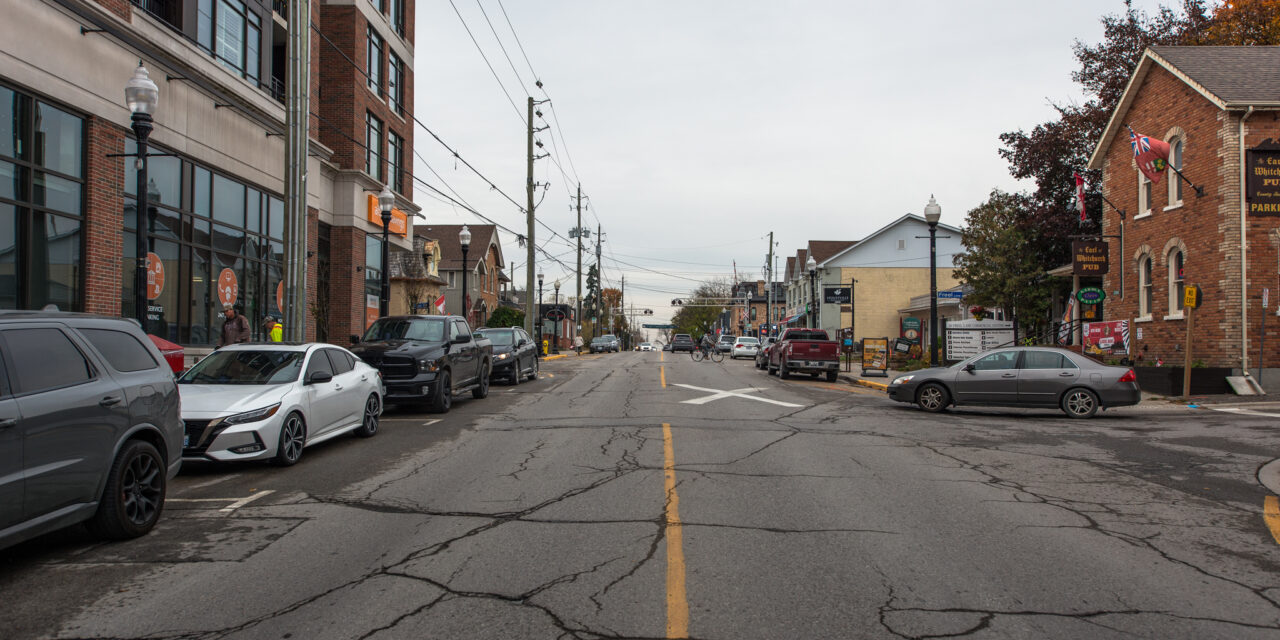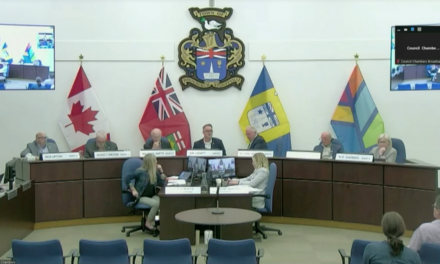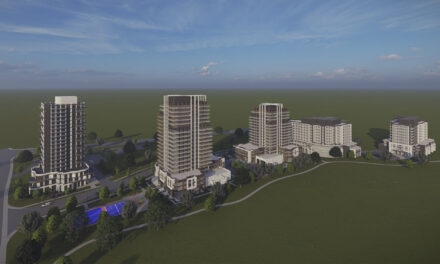- Mayor Lovatt has tabled a motion for next week’s Council meeting asking for an investigation into reduced minimum parking requirements for new residential developments along much of Main Street.
- Parking minimums can prohibit the delivery of new housing when requirements cannot be met due to costs or execution challenges.
- The construction of parking spaces can also result in significant price increases when costs are passed on to homebuyers.
- Concerns with parking minimum reductions include a potential influx of illegal parking on community roads and within local businesses’ parking lots.
- The changes, if approved, would fall in line with proposed Provincial planning policies aimed at reducing minimum parking requirements for development around major transit station areas such as Stouffville GO.
Municipalities mandate a certain number of parking spaces per housing unit based on the type of housing being considered. In Stouffville, single, semi-detached, and townhouses require 2 parking spaces per dwelling. Apartments and condo buildings require 1.5 spaces per dwelling, a rate inclusive of 0.25 spaces per dwelling for visitor parking.
The topic of adequate parking provision within new development is a regular talking point in Council Chambers. With developers often seeking reductions to their parking obligations due to costs and execution challenges, there is a long history of expressed concern from Council members and residents during Public Planning Meetings.
Lovatt noted that his motion is in line with Provincial policy changes expected to be enacted through Ontario’s Bill 185. The Bill “[limits] the ability of Official Plans and Zoning By-laws to require that an owner provide parking facilities in…areas around transit stations, effectively letting the market decide the number of parking spaces required near major transit stations,” he explained.
Expanding on the Province’s proposal, the Mayor’s motion looks to engage Stouffville’s Western Approach Mixed-Use Area, Gateway Mixed-Use Area, and Core Area. The combined landmass stretches along Main Street from Highway 48 to Pine Street, and maps of each area are available in our Official Plan piece.
The eventual two-way rail service along the Stouffville GO Line will have an “incredible” impact and alleviate the long-standing need for a vehicle in Stouffville, according to Lovatt, and YRT service could move residents to and from the station and other Main Street amenities. “I believe this is a bold direction that I am hopeful Council will support,” Lovatt added.
Finding that support could be difficult given past Council debates, however, raising the potential need for Strong Mayor Powers to see the motion adopted without majority support. While Lovatt once stated that the use of such powers is not necessary to move local housing projects forward thanks to the high level of cooperation and consensus among Stouffville’s Council members, he would not comment on the potential need for them next week.
Councillor Rick Upton, who once announced that “parking is [his] middle name,” addressed the issue of adjusted parking minimums in a recent conversation with Bullet Point News. While he would not comment on Lovatt’s motion, he did reiterate assumed consequences stemming from any reductions to the Town’s parking requirements.
“God bless this town, but we are car-centric. There are so many places in Stouffville requiring a car to access, and we lack adequate transit service,” Upton explained. “What do you do at night when you want to go to a movie, see your mother-in-law, or go shopping?” he asked hypothetically. “Don’t tell me you don’t need a car because you can take a train down to Toronto.”
In Upton’s view, additional cars will join new residents even if they only have one parking space. This could result in an abundance of illegal parking on local roads and within private parking lots. “If we allow developers to build with a lower ratio, I feel it’s going to come back to haunt us.”
The Town’s Procedural By-law prohibits members of the public from speaking to Council members’ motions. Instead, residents can email their comments to Mayor Lovatt and Stouffville’s six Council members in advance of their 1 p.m. meeting on April 17.





